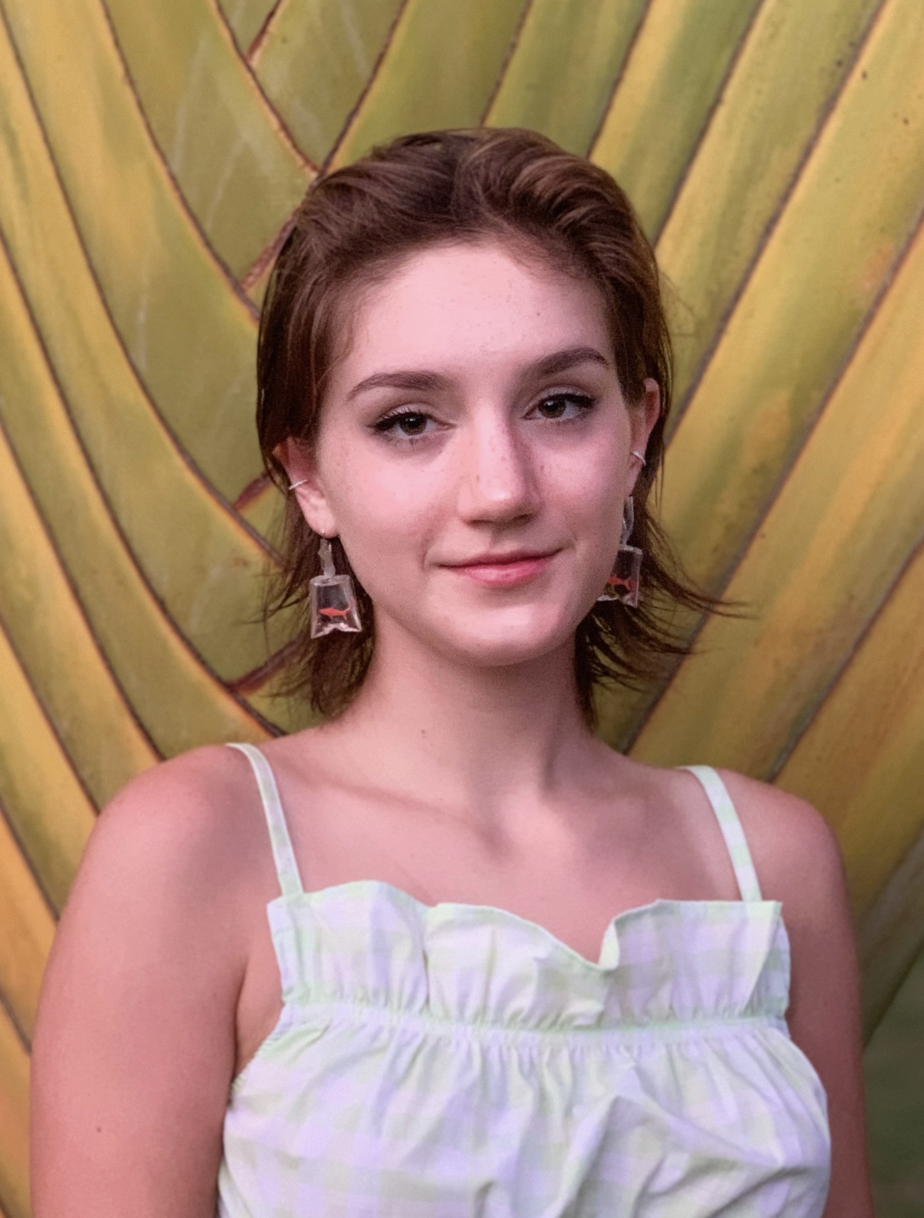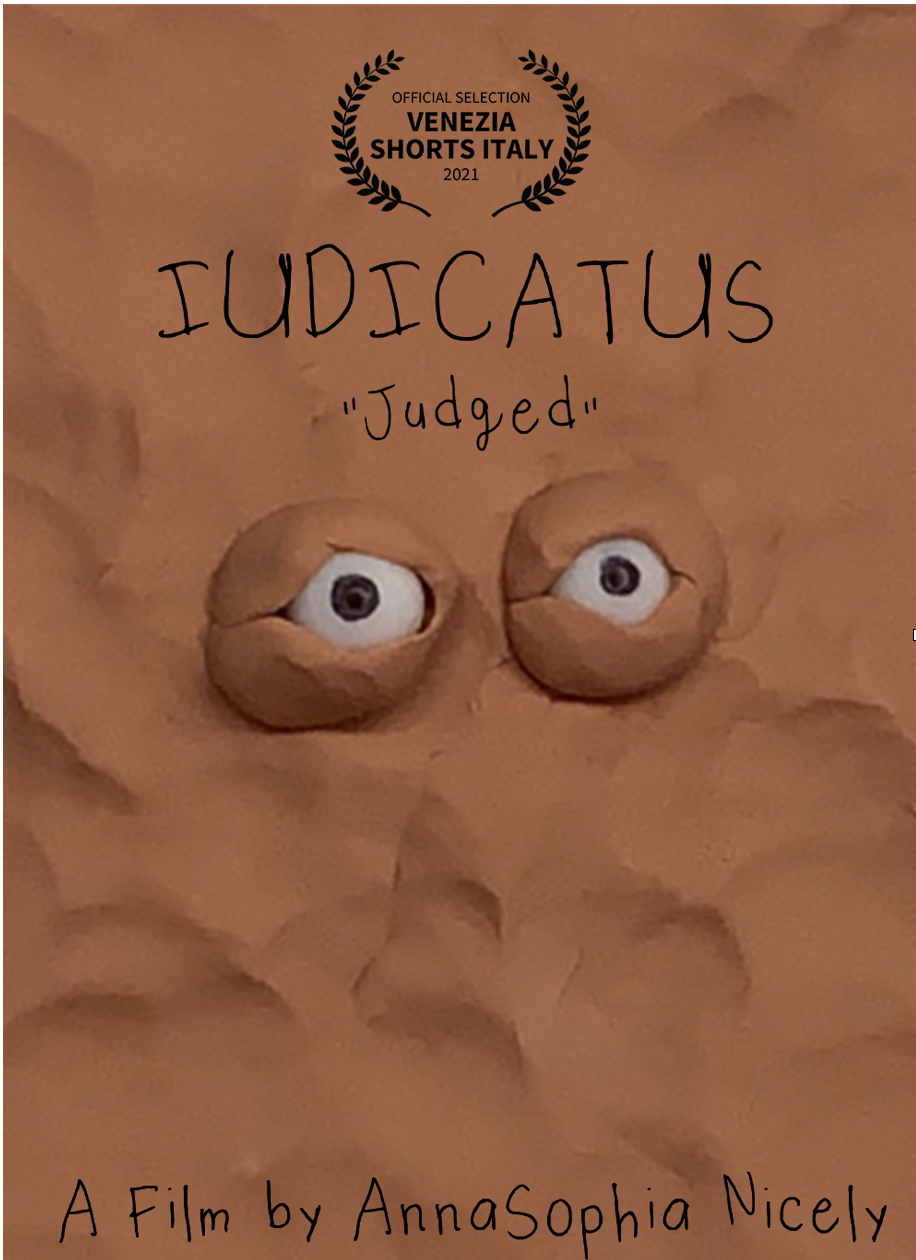
IUDICATUS
BIOGRAPHY
My name is AnnaSophia Nicely and I am 16 years old. I am a student in Washington DC and my first film ‘Iudicatus’ was made possible by an arts fellowship I was awarded by my school. I’ve had a deep love of film my entire life, and I create my own movies to give back to the art form that raised me.
AnnaSophia, you are the Director, Writer, Producer, Key Cast, Narrator and Music Writer and Performer of Iudicatus and you are only 16 years old. This is your first stop motion animation, is that right? Is it your very first time filmmaking at all?
Yes! This is my first time filmmaking, and yes, I didn’t quite realize what I was taking on when I started the project. I’ve grown up with movies and stop motion, but I’d never truly internalized the amount of work that goes into even a small piece. It taught me a few valuable lessons: first, that appreciating the work of the cast and crew is an essential part of enjoying cinema, and second, that while I enjoyed the challenge, filmmaking is in no way a one-person job. I hope that this experience gave me the tools I need to succeed in a group environment, as it taught me how carefully crafted each aspect needs to be to fit into a complete movie.

How long did the whole filmmaking process take considering you crafted all of it by yourself?
The entire filmmaking process to be about 7 months, with 3 months of shooting. Turns out the actual filming and clay manipulation wasn’t even the hardest part! Story building, editing, and sound design all take time and careful effort. I guess when they say that editing is the final rewrite of a movie, they mean it. The post-production process led me to change aspects of my movie by scene manipulation alone, without even having to reshoot!
As you sayed, the complexity of the spoken word juxtaposed to the simplicity of the animation, which certainly led us to watch it over and over again. Thank you for sharing it with us! Could you briefly explain to us how this animation type is crafted?
As I said, stop motion has been a part of my life for as long as I can remember. I grew up loving the whimsical movements and stunning sets, especially in movies like Coraline (which I still consider one of my favorites to this day). And yes, I have to say, I’ve always been entranced by its capacity for creepiness and soul. Claymation and puppet animation in particular have the ability to tell stories in a way that seems to reach through the screen, as if you can feel the movement and work of the hands that gave life to those figures. They are just as much a part of the story as the characters we see are. That being said, the process of animating stop motion is extremely time-consuming and often frustrating. I can’t begin to say, without being embarrassed, how many times I broke down over one of my characters falling or breaking while I was trying to shoot. The fluidity of the animation relies entirely on small, incremental movements, and losing positioning basically means the death of your shot. I shot at 11 frames per second, meaning my whole movie is approximately 3000 individual photos. After each photo, the scene had to be manipulated by hand to bring it to life, and while my first attempt is not perfect, I am proud of the characters I was able to bring out through stop-motion.
Do you believe that “choosing to use our eyes as vessels of judgement and hate instead of searching for the beauty around us” is a matter of a particular age group, or of a particular gender group or, sadly, a matter of the human condition? If you believe that is the case, what would you say which part of you will survive?
I’ve always had the idea that humans are not defined solely by age, political beliefs, gender, race, or any other factor. Instead, I believe that a person’s view of the world can be seen through a simple question: Are humans born good, evil, or neither? I am a firm believer that all people are born good. So no, I don’t believe that the broken pieces of modern society (which my movie critiques) are a matter of the human condition. Due to individual circumstances, some people attempt to infect the world with hatred and cruelty. These people pass down these selfish ideas through generations, teaching young children to hate one another based only on the color of their skin, or to look down on others for their gender identity. This hate spreads and consumes like a virus, closing many off to the beauties of our diverse, interconnected world. But there is hope: humans are not innately selfish animals. We are not innately individual animals. We are loyal, we care for each other, we experience empathy for those who are different than us. We find beauty in the strangest things, we wear gold jewelry because we love things that shine, we give each other flowers and we put meanings behind each one. We play in water even though we can breathe under it, even though it can kill us. We watch the stars and wonder if we are alone. Humans are not perfect, and we’ve done a lot of wrong to each other and to the world around us. But we have the means to change that, because we have the choice of love. The ability to love is the part of us that refuses to die.






